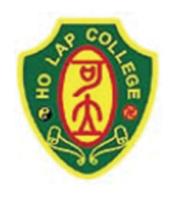| Language Policy |
All subjects, except Chinese Language, Chinese Literature, Chinese History and Putonghua, are taught in English. Subject-based and cross-subject English programme, diversified English activities, Speak Putonghua campaigns, reading programmes, debating contests, public speaking, mini drama and overseas English exchange programmes are organized to help students master the 'Two Languages, Three Dialects'. Newspaper reading activities and forums on current affairs are also held to enhance students' ability to study current issues. |
| Learning and Teaching Strategies |
We regard developing of student's learning skill as our primary concern. Self-regulated learning, diversified learning activities and tailor-made curricula are adopted to cater for the needs of students of different abilities and to enable them to derive pleasure from their academic achievements. While training on study skills is given in junior forms, a large-scale cross-curricular project learning programme is implemented in S.1 to S.3 to reinforce related skills. 13 elective subjects are offered in S.4 and students can choose any 3 elective subjects according to their interests and abilities. Various subjects are set to cultivate in students' thinking skills and comprehension skills at different levels. To enhance student participation in class, interactive and self-directed learning and teaching strategies including cooperative learning, collaborative learning, group discussion, reporting and debating are adopted. To boost learning and teaching effectiveness, co-curricular learning activities, visits, field trips and life-wide learning day are also organized to extend learning and teaching beyond the classroom to reach out to real situations. |
| School-based curriculum |
1. Electives: 3X. Students can choose to study 3 subjects out of 13 elective subjects. In each elective block, students choose one subject out of 4-6 subjects. Subject combination and number of groups of elective subjects are arranged according to the abilities and interests of the students.<br> 2. Curriculum highlights: For S.1 to S.3, a school-based curriculum is adopted to enhance learning interest and competence. It provides training of generic skills & different learning opportunities to our students in order to prepare themselves for public examination and life-long learning. |
| Approach to Catering for Learner Diversity |
Whole school approach is adopted to provide support to students in their personal growth at different stages. It is the whole person development that the school advocates with a view to developing students’ potentials in a full, all-round and balanced manner. Students are taught to actualize benevolence and the values as stipulated in school motto, to build up their habits of mind and positive thinking together with collaboration and leadership skills. |
| Approach to Integrated Education |
Our school implements student support work in a Whole-school Approach model to cater for students’ individual differences and students with special education needs. We provide appropriate guidance and support for students with different education needs. We also make reasonable adjustments in teaching and assessment to students with special education needs, and encourage them not to give up easily but to do their best. We promote mutual respect among teachers and students, encourage home-school cooperation, and to create an inclusive environment. <br><br>Our school-based support services include Speech Therapy, Educational Psychology Service, Learning Support Service, Group training and support to parents. |
| Education Support for Non-Chinese Speaking (NCS) Students |
|
| Home-School Co-operation |
The Parent-Teacher Association actively cooperates with the school to organize various activities to enhance rapport and communication between parents and the school. |
| School Ethos |
We aim to create a caring, harmonious learning environment in which students can acquire a spirit of kindness, benevolence and serving others. Our students are educated to be well-rounders who have outstanding academic results, varied talents or achievements and can make meaningful contribution to the community. |
| School Development Plan |
The school aims to provide comprehensive, holistic education for all students. By fostering the spirit of enquiry and exploration among students, equip students to become competent learners in the 21st century. Apart from academic subjects, team building, communication skills, attitude towards life and moral education are also of vital importance in the school curriculum. Continuing professional development of teachers are encouraged to maintain the quality of education. The school also emphasizes the connection with parents and the community and strives to provide high-quality whole-person education. |
| Teacher Professional Training and Development |
In line with the professional ladder set by the Education Bureau, teachers are encouraged to actively participate in professional training courses and activities. Through professional exchanges and collaboration within and outside the school, a professional learning community is established to enhance teachers' professional capacity. |
| Life-wide Learning |
We have more than fifty clubs and interest groups. Through inter-house activities and competitions our students develop organizational abilities and a sense of belonging to the school. Co-curricular activities further enhance their knowledge outside the classroom and help them form good habits and character. To widen their horizons, boost their confidence and facilitate exchange of experiences, they actively participate in inter-school contests, charity events and cultural exchange tours. |
